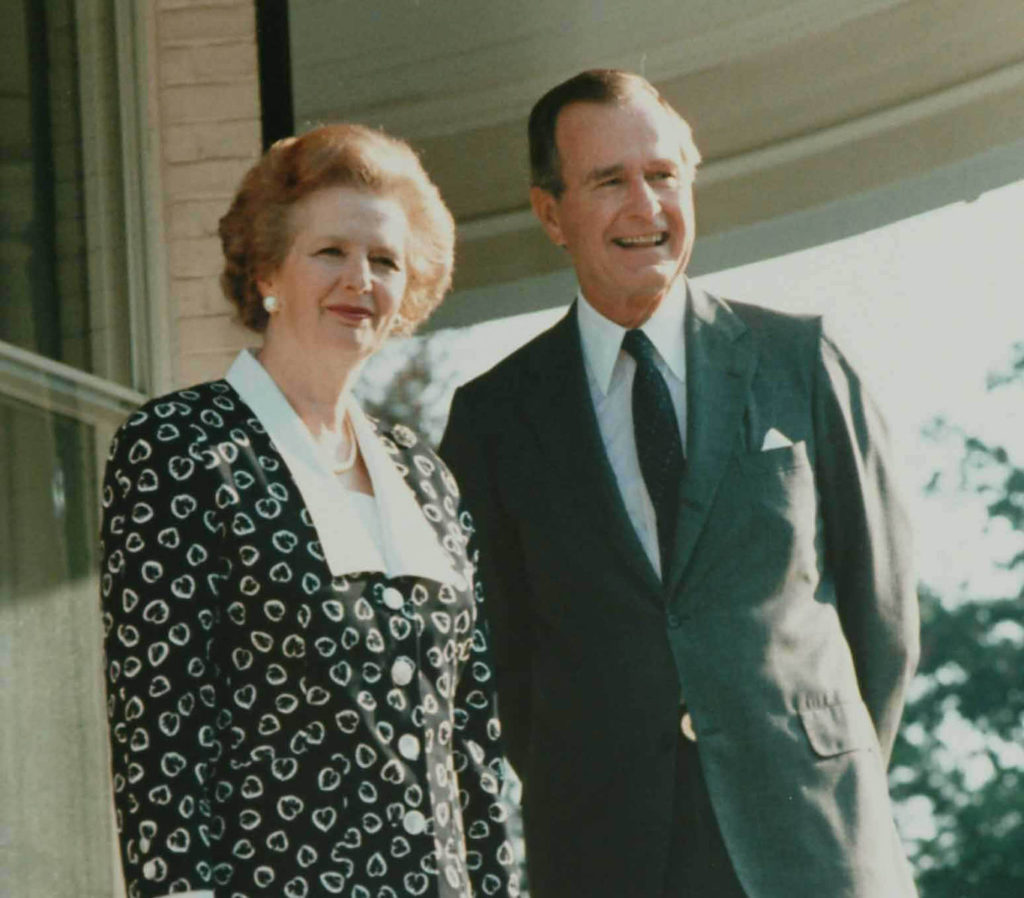Before becoming the first woman ever to be the Prime Minister of Great Britain, Margaret was the daughter of a family that owned a grocery shop. She was born in October of 1925, four years after the birth of her older and only sister, Muriel. Her father, Alfred Roberts, was the Mayor of Grantham and a businessman who lived with his wife and two daughters above his shop in the same town.
Early interest in politics
Because of her father’s position and her own enthusiasm, Margaret was involved in politics from a young age. She became more and more interested in politics while she was going to the University of Oxford to get her degree in chemistry. During that time, she started to form her opinion about having a government that has very little and limited control over the business world. Right after her graduation from Oxford, she got her first job as a chemist in 1947.
A seat in the Parliament
After trying twice to run for the Parliament and losing both times, Margaret Thatcher decided to get a degree in law first. After getting her law degree, and with the experience she gained from her failed attempts in the previous elections, Thatcher won the election for Britain’s House of Commons as a member of the Conservative Party. She served in her seat successfully for 30 years!
In 1970, Margaret Thatcher became the Secretary of Education in the British government. Next, in 1975, Thatcher became the leader of the Conservative Party after the party had lost the majority position.

The first Lady Prime Minister
In 1979, Margaret Thatcher became the Prime Minister of Great Britain. She was the first woman in history to reach this position. Thatcher continued to serve in her position for the next 10 years leading her country out of the Cold War among many other achievements.
Throughout her time in office, Thatcher was very strict against communism and the Soviet Union. Her tough position led the Soviet to nickname her “the Iron Lady” in an attempt to make fun of her. The nickname, however, suited the lady who led her country for 10 years and it stuck with her.
Although she had a very firm opinion against communism, Thatcher was very wise to seize the right opportunity for peace and end the Cold War. Along with U.S. President Ronald Reagan, Margaret Thatcher started to extend relations with the Gorbachev once he became the leader of the Soviet Union and showed signs that he was willing to be flexible to solve his country’s problems. During Thatcher’s leadership, the Berlin Wall came down and the Cold War officially ended.
Thatcher also dealt very wisely and effectively with other crises such as the Falkland War when Argentina tried to occupy the Falkland Island. The Iron Lady sent British troops at once to retrieve the Islands for the British control once again. This whole war ended in a matter of a few months and the Falkland Islands were returned to Great Britain because of Thatcher’s quick and responsible reaction.
She also made multiple economic changes that led to a massive improvement in the British economy in the long run. However, in 1990, the Conservative Party made Thatcher resign from her position saying that her policies regarding taxes would not be good for the party in the upcoming elections.
A powerful lady in and out of office
After leaving office in 1990, Margaret Thatcher continued to be an active member of Parliament for two years before her retirement. Even after she retired, she stayed politically active for almost 10 years. She gave speeches and wrote books. In 2003, Margaret’s health started to fail her, after her husband died. She had multiple small strokes over the course of the next 10 years until she died in 2013 at her home in London.
Back to Cold War topics
